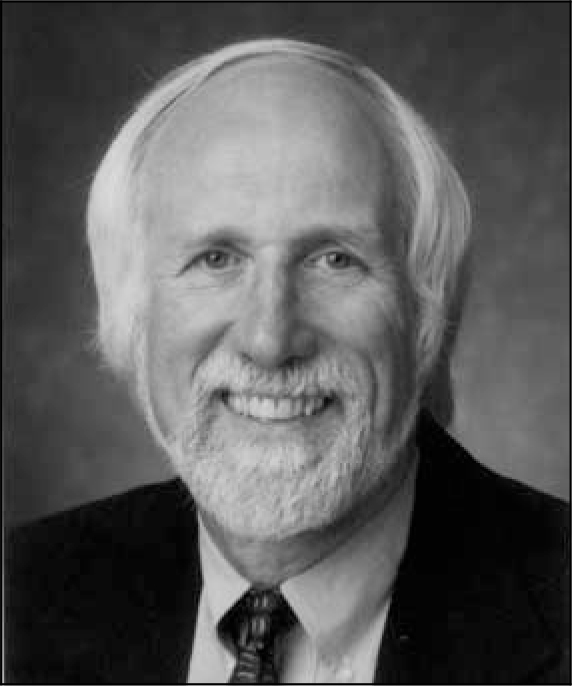William Carpenter is Professor of Psychiatry and Pharmacology, University of Maryland School of Medicine, and Director, Maryland Psychiatric Research Center. His research interests include phenomenology of the psychoses; aetiology, pathophysiology and anatomy of schizophrenia; integration of basic and clinical sciences; research training and administration; and research ethics.
If you were not a psychiatrist, what would you do?
Forty-eight years ago the choice was between medicine and professional football; now it's psychiatry or retirement. I’ve made the right choice on both ends.
What has been the greatest impact of your profession on you personally?
Makes me happy. Schizophrenia is a wonderful challenge with non-stop stimulation from the science and colleagues.
Do you feel stigmatised by your profession?
Not so much in recent years, but stigmatisation has a substantial and negative effect on our patients and society.
What are your interests outside of work?
Family, friends and tennis (in that order as I keep trying to explain to my wife).
Who was your most influential trainer and why?
John Romano, MD, was Professor and Chair of Psychiatry when I trained at the University of Rochester. He was the leading psychiatric educator in the USA and instilled a deep sense of commitment to the patient with severe illness. He espoused science, evidence and a broad medical model. Perhaps most important was the close relationship he established with each trainee, marking us for life.
What job gave you the most useful training experience?
The jump-start in research at the National Institutes of Health (NIH) Clinical Center in William Bunney's depression programme.
Which book/text has influenced you most?
The chapter on clinical features in Kraepelin's Dementia Praecox.
What research publication has had the greatest influence on your work?
Two articles in Science: Platt's ‘Strong inference’ describing more rapid progress in science when hypothesis falsifying studies force theory modification; and George Engel's critique of the biomedical model and exposition of the bio-psychosocial medical model.

What part of your work gives you the most satisfaction?
Most profound, but abstract, is the advancement of knowledge and therapeutics. But experience counts a lot, and interactions with colleagues make my days.
What do you least enjoy?
The constant frustration of opportunity lost because of inadequate financial support.
What is the most promising opportunity facing the profession?
Identifying domains of psychopathology as unmet treatment needs in schizophrenia are moving the field to novel drug discovery. As we break out of 50 years of dopamine antagonism, we may finally address the cognition and volitional pathologies which determine functional outcomes, and we will have new opportunities for early intervention.
What is the greatest threat?
Two things: inadequate investment in best opportunities and the extraordinary increase in time and effort required to gain approval for human research. Regarding the former, the NIH budget crisis is having an adverse effect not likely to be corrected in the current political climate. As to the latter, many new procedures have been instituted in ethics review without evidence for effectiveness in enhancing research ethics.
What single change would substantially improve quality of care?
With current knowledge, the sophisticated integration of efficacious psychosocial treatments with judiciously administered pharmacotherapy would be a giant step forward in many countries. Discovery of new treatment for cognition and volition impairments would be the most important change based on new knowledge.
What conflict of interest do you encounter most often?
Financial, especially subtle influence on those providing and those receiving information on pharmacotherapy.
Do you think psychiatry is brainless or mindless?
We’ve certainly shifted from brainless in the direction of mindless, but we have lost depth in phenomenology and still cannot define molecular pathology for our diseases.
How would you entice more medical students into the profession?
Capture their idealism with the human consequences of our illnesses; and capture their imagination with the excitement of neuroscience and the potential application of translational research.
What is the most important advice you could offer to a new trainee?
Make the sacrifice find the right fellowship and develop some special expertise at the start of your career.
What are the main ethical problems that psychiatrists will face in the future?
Meeting the clinicians’ obligation to provide optimal care in the face of constraints that preclude key elements.
How would you improve clinical psychiatric training?
Strengthen the neuroscience base and prepare trainees for the application of translational research.
What single change to mental health legislation would you like to see?
In the USA, legislation which is actually effective in requiring parity in funding clinical care for psychiatric disorders.
What is the future for psychotherapy in psychiatry training and practice?
This is complex but sound bite size response is: (a) psychiatrists should be trained in the full range of interpersonal therapeutic techniques which have evidence for effectiveness; (b) psychiatrists must become competent in the integration of pharmacotherapy and therapies delivered in the interpersonal framework; and (c) psychiatrists need to be prepared to provide leadership to clinical care groups where other professionals will have the more dedicated training in specific techniques.
What single area of psychiatric research should be given priority?
This should always be determined by a combined judgement of relevance/significance on the one hand and the potential for rapid advance on the other. But, of course, schizophrenia.
What single area of psychiatric practice is most in need of development?
Effective integration of the full range of therapeutic and rehabilitation procedures.



eLetters
No eLetters have been published for this article.